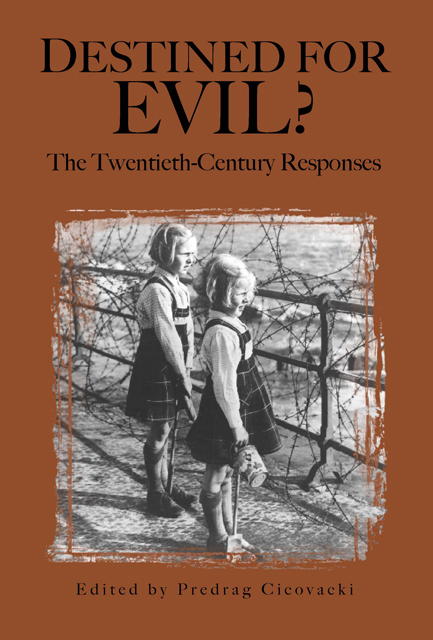Book contents
12 - Thou Shalt Not Kill
Published online by Cambridge University Press: 17 March 2023
Summary
The taming of man, his development from gorilla to civilized being, is a long, slow process. The advances thus far embodied in law and custom are fragile; time and again what seemed to be definitive achievements are negated by an atavistic gnashing of teeth. If we see our provisional goal in the fulfillment of the spiritual imperatives put forth by the spiritual leaders of mankind from Zoroaster and Lao-tzu down, we are compelled to say that present-day mankind is still far closer to the gorilla than to man. We are not yet human, we are on the way to humanity.
A few thousand years ago the religious law of a superior people handed down the fundamental maxim: “Thou shalt not kill.” In the spring of 1919 Baron Wrangel, addressing a small international gathering of idealists in Bern, put forward the demand that in future no man must be compelled to kill another man—“not even in the service of his country.” And this was felt to be a significant step forward. That is how far we have come. Some thousands of years after Moses formulated the commandment on Mount Sinai, it is restated very cautiously and with restrictions by a small group of well-intended men. Not a single civilized people has embodied it without restriction in its legal code. Everywhere men are still timidly discussing this simplest and soundest of all imperatives. Every student of Lao-tzu, every disciple of Jesus, every follower of Francis of Assisi was centuries in advance of the law and reason of the present-day civilized world.
This would seem to argue against the value of such lofty demands and to demonstrate purely and simply that man is incapable of progress. A hundred other examples might be cited in support of the same contention. Actually, our dismal experience does not detract from the value of such humanitarian imperatives and insights. For thousands of years the maxim “Thou shalt not kill” has been honored and faithfully followed. After the Old Testament came a New Testament; Christ was possible, the partial emancipation of the Jews was possible, mankind produced Goethe, Mozart, and Dostoevsky. At all times there has been a minority of men of good will, who believed in the future and obeyed laws that are inscribed in no secular legal code.
- Type
- Chapter
- Information
- Destined for Evil?The Twentieth-Century Responses, pp. 165 - 168Publisher: Boydell & BrewerPrint publication year: 2005

